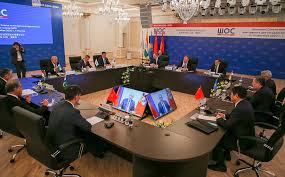SCO member states discuss prospects of gradual shift to payments in national currencies

Beijing: The representatives of the leading financial institutions from the Shanghai Cooperation Organization (SCO) member states took part in a roundtable discussion on developing recommendations for the gradual shift to payments in national currencies.
The event was organised by Russia as part of its SCO Presidency. The meeting was attended by SCO Deputy Secretary-General Sherali Jonon who noted the relevance and active cooperation of the countries in the area of national currency payments, according to a press statement issued by SCO Secretariat here.
In his remarks, he stressed that this sort of financial cooperation can strengthen economic, trade and investment exchanges between the SCO countries, and build a solid foundation for the expedited development of the regional economic integration within the SCO.
This cooperation can boost the international status of the national currencies of the SCO countries, facilitate a multi-polar development of the international currency system and support the SCO’s regional economic security.
It will also contribute to the development and unfolding of the SCO members’ financial industry and it will also boost their capacities when it comes to trading financial resources on the international market, SCO Deputy Secretary-General emphasised during his remarks.
The participants discussed the current state of mutual payments between the SCO countries, exchanged opinions on the prerequisites, stumbling blocks and possibilities of shifting to mutual payments in national currencies
Those at the event also discussed up the subsequent action plan in the context of the draft roadmap of the SCO member states on the gradual increase of the share of national currencies in mutual payments, which they are currently developing.
In view of the upcoming summit of the SCO heads of state, the participants agreed to promptly finalise the draft roadmap and establish a working group of experts who will subsequently organise work based on the roadmap.





